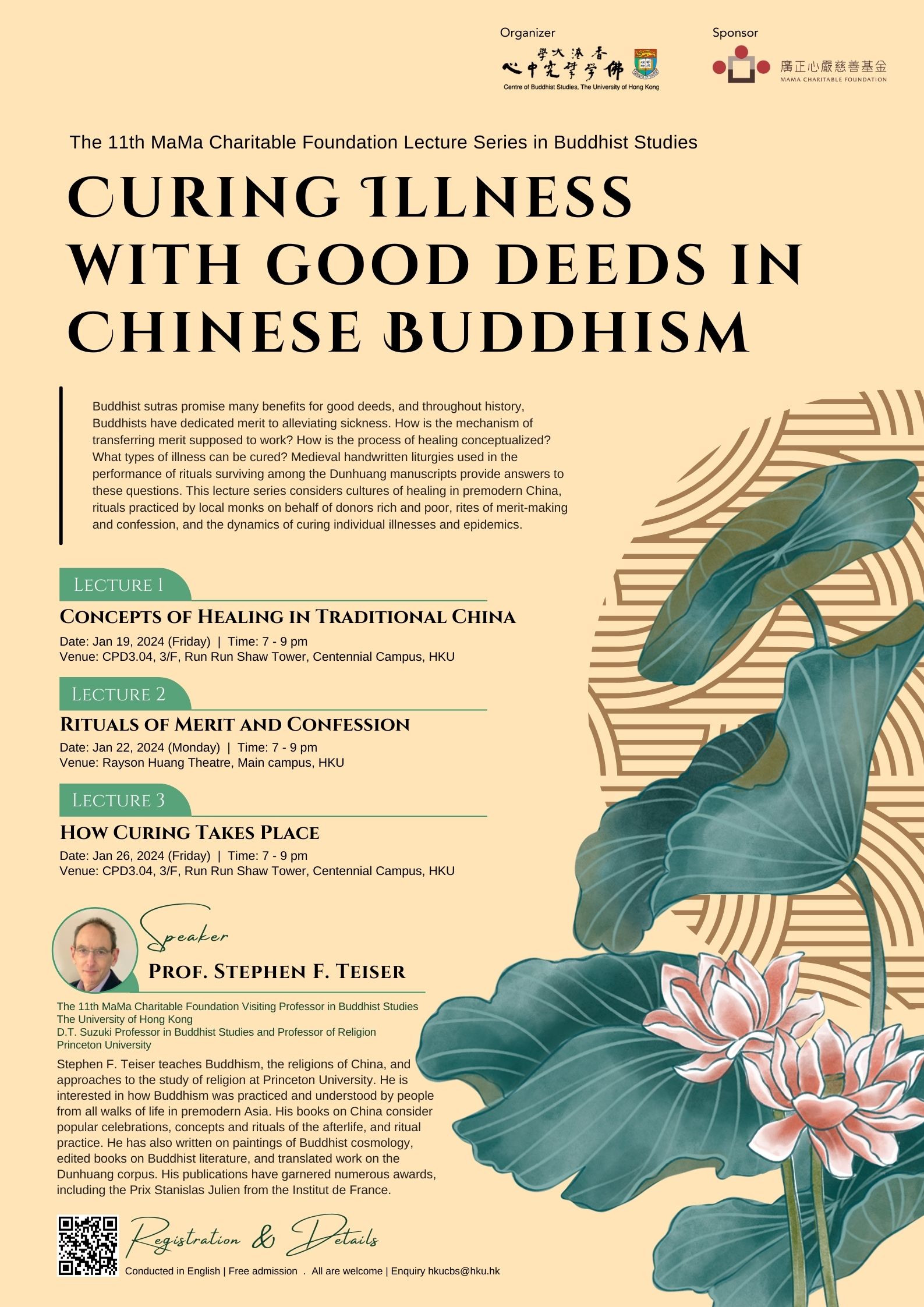Curing Illness with Good Deeds in Chinese Buddhism
Buddhist sutras promise many benefits for good deeds, and throughout history, Buddhists have dedicated merit to alleviating sickness. How is the mechanism of transferring merit supposed to work? How is the process of healing conceptualized? What types of illness can be cured? Medieval handwritten liturgies used in the performance of rituals surviving among the Dunhuang manuscripts provide answers to these questions. This lecture series considers cultures of healing in premodern China, rituals practiced by local monks on behalf of donors rich and poor, rites of merit-making and confession, and the dynamics of curing individual illnesses and epidemics.
Lecture 1
Concepts of Healing in Traditional China
Lecture 2
Rituals of Merit and Confession
Lecture 3
How Curing Takes Place
Speaker: Prof. Stephen F. Teiser
Stephen F. Teiser teaches Buddhism, the religions of China, and approaches to the study of religion at Princeton University. He is interested in how Buddhism was practiced and understood by people from all walks of life in premodern Asia. His books on China consider popular celebrations, concepts and rituals of the afterlife, and ritual practice. He has also written on paintings of Buddhist cosmology, edited books on Buddhist literature, and translated work on the Dunhuang corpus. His publications have garnered numerous awards, including the Prix Stanislas Julien from the Institut de France.
Conduct in English | Free admission | All are welcome
Enquiry: hkucbs@hku.hk
Organizer: HKU Centre of Buddhist Studies
Sponsor: MaMa Charitable Foundation
